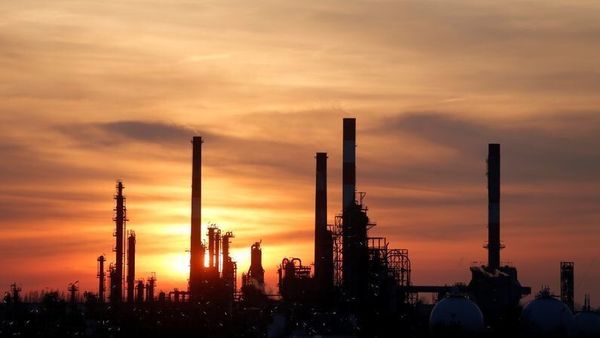Coronavirus: Oil rises after 18-year lows prompt U.S.-Russia talks plan
- Oil markets have faced a double whammy from the coronavirus outbreak and a race to win market share between Saudi Arabia and Russia.


Oil prices firmed on Tuesday after U.S. President Donald Trump and Russian President Vladimir Putin agreed to talks aimed at stabilising energy markets, with benchmarks climbing off 18-year lows hit as the coronavirus outbreak cut fuel demand worldwide.
Brent crude was up by 61 cents, or 2.7%, at $23.37 a barrel by 0833 GMT, after closing on Monday at $22.76, its lowest finish since November 2002.
U.S. crude was up by $1.04, or 5.2%, at $21.13 a barrel, after settling in the previous session at $20.09, its lowest since February 2002.
Trending Cars
Also Read : Coronavirus: World oil output may fall by 10 million barrels a day, says IHS
Oil markets have faced a double whammy from the coronavirus outbreak and a race to win market share between Saudi Arabia and Russia after OPEC and other producers failed to agree on deeper cuts to support oil prices in early March.
Trump and Putin agreed during a phone call to have their top energy officials discuss stabilising oil markets, the Kremlin said on Monday.
Although the futures market is seeing a recovery, physical cargoes are selling in some regions at single digits, with sellers offering hefty discounts.
"The gap between physical assessments and futures reflects the differences between the realities on the ground and speculation about efforts to ease that pressure going forward," JBC Energy said.
Also Read : Oil plummets to 17-year low as broken market drowns in crude)
With a plunge in prices that has knocked about 60% off oil prices this year, a commissioner with the Texas state energy regulator renewed a call for restrictions on crude production because of the national supply glut.
In a sign of how well the market is supplied, the front-month Brent futures contract for May is trading at a discount of $13.95 per barrel to the November contract , the widest contango spread ever seen.
A contango market implies traders expect oil to be higher in the future, encouraging them to store oil now to sell later.
Saudi Arabia, de facto leader of the Organization of the Petroleum Exporting Countries, plans to boost its oil exports to 10.6 million barrels per day (bpd) from May on lower domestic consumption, a Saudi Energy Ministry official said.
Global oil refiners, meanwhile, have cut their throughput because of the slump in demand for transportation fuel, with European refineries slashing output by at least 1.3 million barrels per day (bpd), sources told Reuters.
Exxon Mobil Corp closed a small crude distillation unit at its 502,500 bpd Baton Rouge refinery in Louisiana due to low demand, sources said.
Chief economist for global commodities trader Trafigura said oil demand could fall in the coming weeks by as much as 30% from consumption at the end of last year.








 1490 cc
1490 cc Multiple
Multiple
















